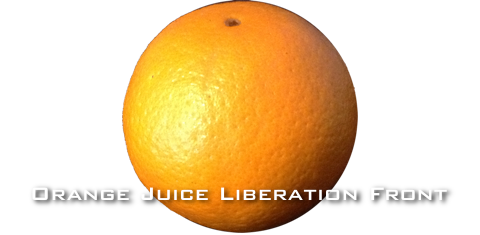Hacking the Press - A point for usability in press kits
![[Screenshot of the folder window for an example press kit by Realmac Software] [Screenshot of the folder window for an example press kit by Realmac Software]](http://orangejuiceliberationfront.com/wp-content/uploads/2010/11/IMG_0366.jpg)
I once saw Adam Engst, of TidBITS fame, hold a talk called Hacking the Press at the Advanced Developers' Hands-on Conference (the first successor to MacHack). It was a great introduction to how the press works, told with the average programmer in mind, translating the life of a journalist into words we geeks can understand. I don't remember much of it in concrete details, but whenever the topic of press releases comes up, I realize that I know much more about this stuff than by all means I should, so I guess Adam managed to insinuate himself into my brain quite well.
Recently, Nik Fletcher of Realmac software gave a great interview about press kits, press releases and related matters on the MDN Show Podcast, and I realized that all that great information that was provided there was missing one important answer that I probably first heard from Adam:
Why do I need a nice press kit?
Nik and Scotty were kinda struggling with vague benefits, like "being nice" or "convenience". But nothing hammers home the point better than a bit of enlightened self-interest:
There are oodles of Mac applications out there. Moreover, there are tons of good ones among them. And all of them send out press releases to the same three score or so journalists who, like Adam, have pull in the Mac world. All of these applications are equally worthy of coverage. So, all those journalists are sitting there, sifting through huge piles of press releases for both bad and good applications, picking out the worthwhile ones. And once they have those, they have to go over these releases again and again, and find the ones they will finally cover in the space they have.
Some choices are obvious: If it's a "big", well-known product, it gets covered. If some other similar product has been in the headlines somehow, or hasn't been in the press (or that particular publication) for a while, a product may get covered to "fill that slot". Photoshop not done much for you lately? Great! More coverage for Pixelmator and Acorn! After all, users are still looking for good painting and retouching applications. Similarly, if a problem is on the journalist's mind at the moment, an application that addresses this issue is more likely to be covered.
But what if you don't fit that pattern? Well, you have to compete with the rest of the worthy apps. It's a tough call. Now, if your application has a gorgeous press kit with beautiful screenshots/box shots/whatever of your product, and provides a lot of background information and links to relevant articles on Wikipedia etc. that the journalist can make use of for their article, that may just tip the balance in your favor.
We all know how cool it is to find a list of links and information about a particular topic: You start on one Wikipedia page on embroidering and suddenly you've read half the site, getting to modern computing via the Jacquard loom, and you've learned some interesting things in the process.
You've just helped the journalist find an angle that helps cover your product. They can write a witty little intro piece about embroidering, how far it's come, and if you're lucky they'll say that your embroidering application is what all this has naturally led to. Even if the journalist has to truncate the article and that stuff goes away again, the journalist will remember. There's a personal experience that now connects the journalist to your application, and helps you when it's up against similarly worthy opponents the next time:
"Let's see what interesting things the EmbroiderWorks press kit for their new product contains..."
Yes, I'm aware I'm illustrating the ideal, hit-the-jackpot case. But the bottom line remains: When it comes to being covered in the press, you are not just competing against similar applications, you're also in competition with every other application out there. Many of these are as well-executed as yours.
Having a well-structured, discoverable press kit with the best user experience you can come up with, including URL clippings (.webloc) to lead them to your web site at a double-click, including spec sheets, including a collection of dictionary entries and sources for any required domain knowledge, maybe even including suggestions for articles on topics that include your application, but also others ... all of that can help you get ahead of the others and turn a tie into a win.
